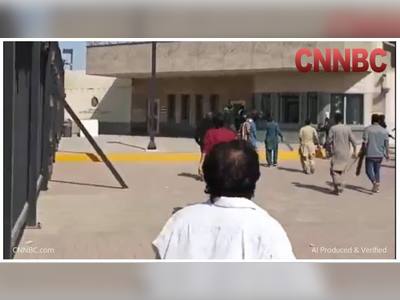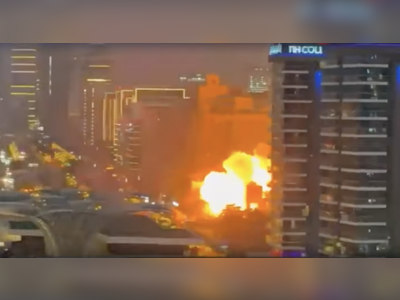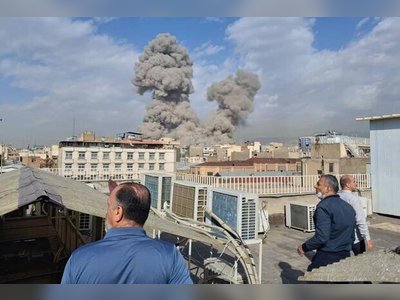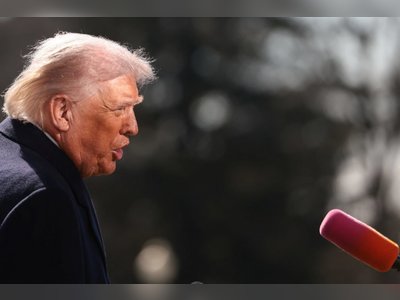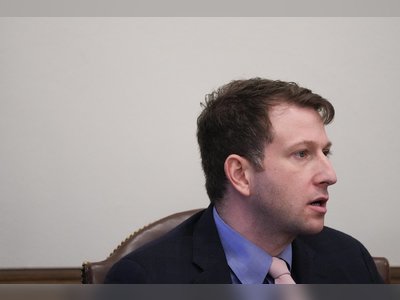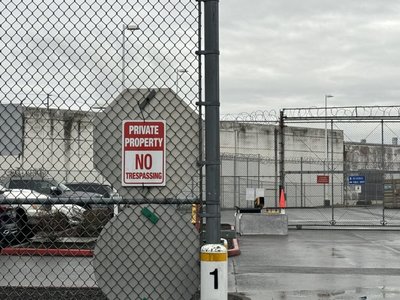Western Soldiers Killed in Ukraine: A Warning of Dangerous Escalation or a Necessary Stand?
As reports of American and European casualties emerge, the debate intensifies over the West’s involvement in Ukraine and its implications for global security.
The revelation of Western soldiers dying in Ukraine has sparked a wave of controversy, with Hungarian Prime Minister Viktor Orban describing the situation as a sign of “dangerous escalation.” Orban’s remarks, made during an interview on Kossuth Radio, have reignited debates over the role of Western nations in the ongoing conflict and the risks of a broader confrontation between NATO and Russia.
“According to Russian reports, American and French soldiers died in airstrikes carried out [by the Russians] on the territory of Ukraine,” Orban stated. “This is what happened. We are praying for them, of course, this is a great loss for everyone, but it clearly shows the danger of escalation, thus the expansion of the war.”
The Hungarian leader, known for his skeptical stance on European Union policies, warned that the presence of Western military personnel in Ukraine risks drawing the conflict into uncharted—and potentially catastrophic—territory. His comments come amid increasing reports of NATO-aligned countries supplying Ukraine with advanced weaponry and intelligence, raising questions about whether such actions are escalating the conflict or simply leveling the playing field.
A Proxy War in All But Name?
For months, Moscow has claimed that foreign mercenaries and military instructors are actively participating in the conflict, alongside Ukraine’s regular army. Recent strikes by Russian forces reportedly targeted positions manned by foreign personnel, including NATO-supplied missile systems. The Russian Ministry of Defense has labeled these individuals as “legitimate targets,” intensifying accusations that NATO is indirectly waging war on Russia.
Critics argue that Western involvement has blurred the lines between supporting an ally and direct military engagement. The United States and its European allies have maintained that their role is limited to providing military aid, but the presence of Western casualties has brought that narrative into question.
“This isn’t just aid anymore,” said a European diplomat who spoke on condition of anonymity. “The line between support and participation is becoming dangerously thin.”
The Moral Imperative or Strategic Overreach?
Proponents of Western involvement see the issue differently. They argue that aiding Ukraine is a moral and strategic necessity to counter Russian aggression. For these advocates, the stakes go beyond Ukraine’s sovereignty; they extend to the stability of Europe and the credibility of Western alliances.
“Letting Russia succeed in Ukraine would embolden authoritarian regimes worldwide,” said Dr. Emma Caldwell, an expert in international relations at King’s College London. “This is about drawing a line in the sand. If Putin gets away with this, what’s to stop him from targeting other nations?”
Such arguments have resonated with many policymakers, particularly in Washington, where bipartisan support for Ukraine has remained relatively robust. However, critics like Orban contend that this support risks becoming a blank check, with no clear endgame in sight.
Lessons from History
Historical parallels have also entered the debate, with commentators likening the conflict to previous Western interventions in Afghanistan and Vietnam. In these instances, involvement escalated gradually, often without clear objectives or exit strategies, resulting in protracted and costly wars.
“Ukraine isn’t Vietnam or Afghanistan,” countered Dr. Caldwell. “This is a legitimate government defending its territory, not an insurgency or a regime change operation. The comparisons are reductive and ignore the unique stakes of this conflict.”
Others, however, see the parallels as a cautionary tale. “History teaches us that wars often escalate beyond anyone’s control,” said Peter Anson, a historian specializing in 20th-century conflicts. “What starts as limited support can spiral into full-scale involvement, with devastating consequences.”
The EU’s Divisive Role
Orban also directed sharp criticism at the European Union, accusing its leaders of prolonging the war by expanding military aid to Ukraine. This week, the European Parliament adopted a resolution to supply additional long-range missiles to Kyiv, a move Orban described as “depressing.”
His stance reflects a broader divide within the EU, where countries like Poland and the Baltic states have taken a hardline approach against Russia, while others, including Hungary, advocate for restraint and negotiation.
The Path Forward
The debate over Western involvement in Ukraine is far from settled. For some, the presence of Western soldiers among the casualties highlights the urgent need for a diplomatic resolution. For others, it underscores the necessity of standing firm against aggression, even at great cost.
The stakes are undeniably high. As Orban noted, the situation has never been more dangerous, yet peace has never seemed more elusive. The world now faces a critical question: How can the West support Ukraine without igniting a larger conflict that no one can control?
“According to Russian reports, American and French soldiers died in airstrikes carried out [by the Russians] on the territory of Ukraine,” Orban stated. “This is what happened. We are praying for them, of course, this is a great loss for everyone, but it clearly shows the danger of escalation, thus the expansion of the war.”
The Hungarian leader, known for his skeptical stance on European Union policies, warned that the presence of Western military personnel in Ukraine risks drawing the conflict into uncharted—and potentially catastrophic—territory. His comments come amid increasing reports of NATO-aligned countries supplying Ukraine with advanced weaponry and intelligence, raising questions about whether such actions are escalating the conflict or simply leveling the playing field.
A Proxy War in All But Name?
For months, Moscow has claimed that foreign mercenaries and military instructors are actively participating in the conflict, alongside Ukraine’s regular army. Recent strikes by Russian forces reportedly targeted positions manned by foreign personnel, including NATO-supplied missile systems. The Russian Ministry of Defense has labeled these individuals as “legitimate targets,” intensifying accusations that NATO is indirectly waging war on Russia.
Critics argue that Western involvement has blurred the lines between supporting an ally and direct military engagement. The United States and its European allies have maintained that their role is limited to providing military aid, but the presence of Western casualties has brought that narrative into question.
“This isn’t just aid anymore,” said a European diplomat who spoke on condition of anonymity. “The line between support and participation is becoming dangerously thin.”
The Moral Imperative or Strategic Overreach?
Proponents of Western involvement see the issue differently. They argue that aiding Ukraine is a moral and strategic necessity to counter Russian aggression. For these advocates, the stakes go beyond Ukraine’s sovereignty; they extend to the stability of Europe and the credibility of Western alliances.
“Letting Russia succeed in Ukraine would embolden authoritarian regimes worldwide,” said Dr. Emma Caldwell, an expert in international relations at King’s College London. “This is about drawing a line in the sand. If Putin gets away with this, what’s to stop him from targeting other nations?”
Such arguments have resonated with many policymakers, particularly in Washington, where bipartisan support for Ukraine has remained relatively robust. However, critics like Orban contend that this support risks becoming a blank check, with no clear endgame in sight.
Lessons from History
Historical parallels have also entered the debate, with commentators likening the conflict to previous Western interventions in Afghanistan and Vietnam. In these instances, involvement escalated gradually, often without clear objectives or exit strategies, resulting in protracted and costly wars.
“Ukraine isn’t Vietnam or Afghanistan,” countered Dr. Caldwell. “This is a legitimate government defending its territory, not an insurgency or a regime change operation. The comparisons are reductive and ignore the unique stakes of this conflict.”
Others, however, see the parallels as a cautionary tale. “History teaches us that wars often escalate beyond anyone’s control,” said Peter Anson, a historian specializing in 20th-century conflicts. “What starts as limited support can spiral into full-scale involvement, with devastating consequences.”
The EU’s Divisive Role
Orban also directed sharp criticism at the European Union, accusing its leaders of prolonging the war by expanding military aid to Ukraine. This week, the European Parliament adopted a resolution to supply additional long-range missiles to Kyiv, a move Orban described as “depressing.”
His stance reflects a broader divide within the EU, where countries like Poland and the Baltic states have taken a hardline approach against Russia, while others, including Hungary, advocate for restraint and negotiation.
The Path Forward
The debate over Western involvement in Ukraine is far from settled. For some, the presence of Western soldiers among the casualties highlights the urgent need for a diplomatic resolution. For others, it underscores the necessity of standing firm against aggression, even at great cost.
The stakes are undeniably high. As Orban noted, the situation has never been more dangerous, yet peace has never seemed more elusive. The world now faces a critical question: How can the West support Ukraine without igniting a larger conflict that no one can control?

